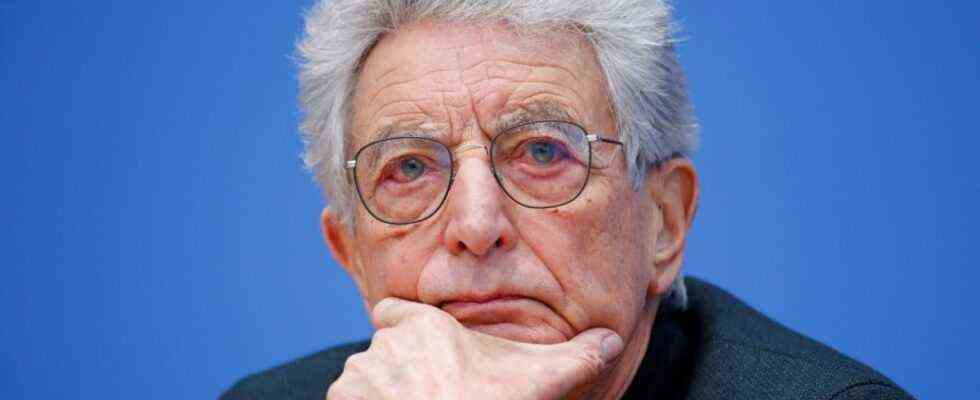We already have, we don’t need: The majority of the WDR Broadcasting Council swept off the table rather harshly a thesis paper that was formulated by a minority of its members who do not count towards either of the two circles of friends – neither that of the SPD nor that of the CDU . These 21 out of 60 broadcasting councils had requested an extraordinary meeting of the panel in which “The future of the design of the programming mandate” should be debated.
This debate did not take place – at least not on a substantive level. A group around Ralf Schnell as a representative of the university rectors, Gerhart Baum as a representative of the Kulturrat NRW and the state parliament member Oliver Keymis (Bündnis 90 / Die Grünen) want to ensure that the topics that are decisive for the future of the WDR are defined transparently. And which should continue to live up to its program mandate in view of the pressure to save and the digital transformation. The thesis paper mentions, among other things, the “Program Strategy 2025” represented by WDR Director Tom Buhrow, as well as the online first strategy, neglecting the linear program. In addition, it is about the orientation of the media library and the cultural mandate.
It is assumed that the authors of the thesis paper wanted to categorically exclude culture from all austerity efforts.
For this, the group was sharply criticized by representatives of the two circles of friends. The main focus of the speeches was that much of what was formulated in the thesis paper was already being discussed in the various committees of the Broadcasting Council – this extraordinary meeting was basically superfluous. Others complained that either the economy or the sport were neglected in the considerations. Several times the authors of the thesis paper were accused of wanting to categorically exclude culture from all austerity efforts.
The counterattack was inevitable: The initiators of the special session complained that the work in the committees was difficult to understand for the plenum. There, the course is set in non-public meetings and agreements are made, the occurrence of which is difficult for the other broadcasting councils to understand. Such a fundamental debate as the one about the program mandate must, however, be conducted in public, by a supervisory body of the public service broadcaster.
Some of the proponents of the thesis paper said in conversation after the meeting that the debate had been frustrating. Others were quite satisfied: the topics were now set, also with regard to the artistic director and the program directors, who traditionally take part in the broadcasting council meetings. In the future, the station management and the broadcasting council would not be able to avoid specifically and above all publicly debating central strategic questions and the quality of the offers, so the hope. That is a core concern of the initiators of the thesis: to get these debates out of the committees and to bring them to the public.
Before the thesis paper became a topic, Jörg Schönenborn, Program Director Information, Fiction and Entertainment, presented his strategy for the coming years at the request of the Broadcasting Council. He succeeded the artistic director Tom Buhrow and Valerie Weber, program director for North Rhine-Westphalia, Knowledge and Culture, who had presented their points of view in the previous meetings. Schönenborn had a clear message to the broadcasting councils: The extent to which money and staff have been shifted to the online area so far is not sufficient at the speed of the current changes: 2021 will be the year in which, after the younger ones, the 30 to For the first time, 50-year-olds spend more time in media libraries than on traditional television – and that would be a majority of the population.
To what extent will be restructured, what specifically the funds will be used for in the future, and whether the artistic director and program directors always act in accordance with the program mandate – the 21 independent Broadcasting Council members want a public debate that has long been held in society and in the media becomes.

